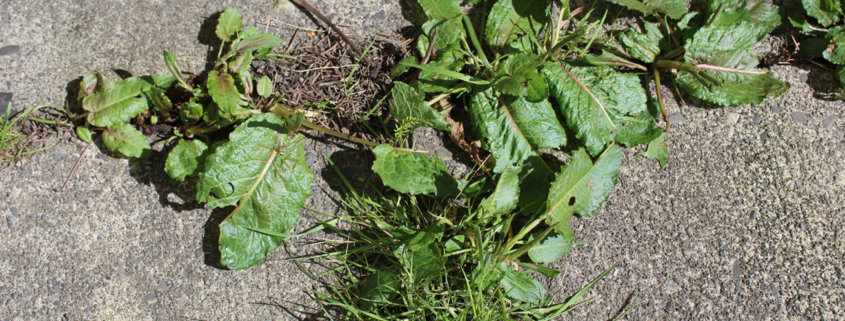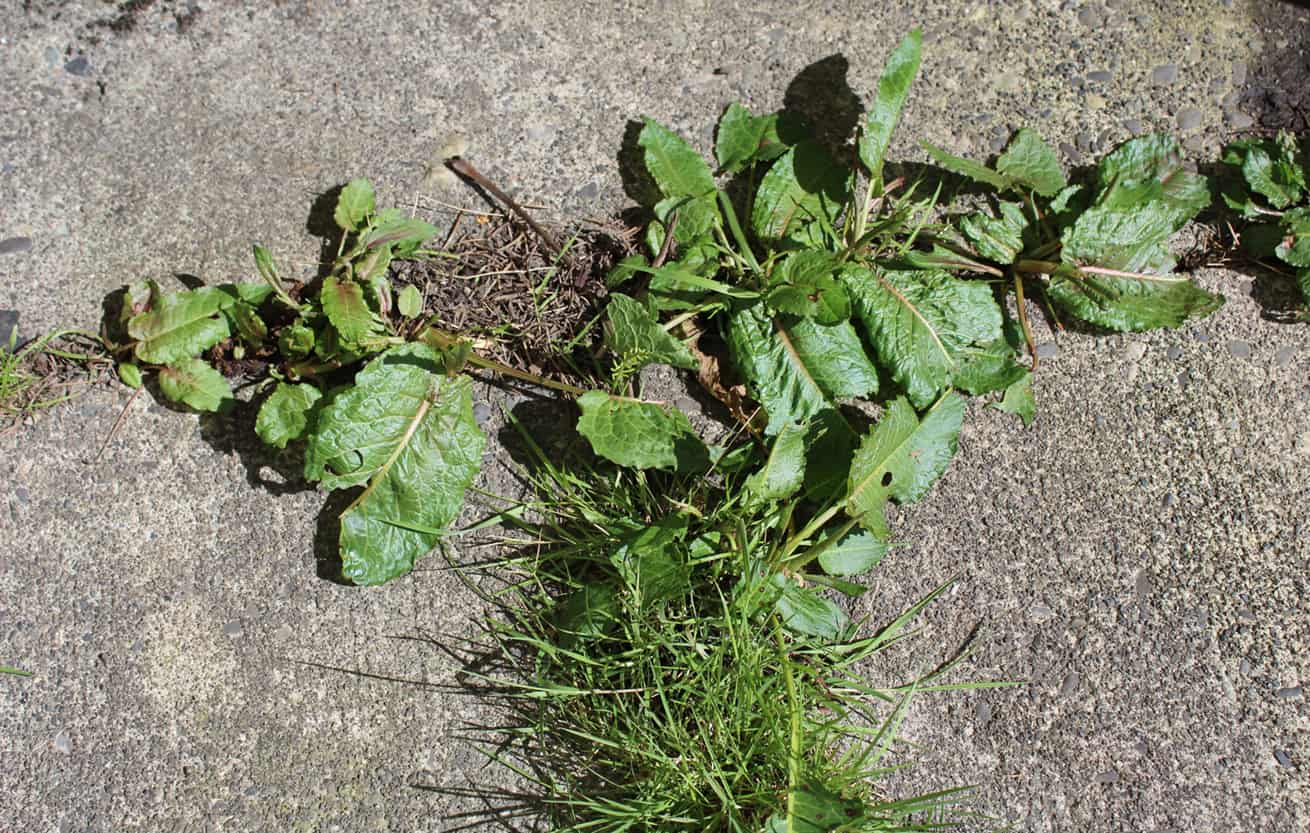5 Non-Toxic Methods That Really Work for Killing Weeds
Weeds are everywhere—lawns, parks, roadsides, driveways, my garden, even busting their way through asphalt and cracks in sidewalks. Weeds thrive without fertilizer, love arid conditions, and require no care or attention. If you don’t want weeds to take over your garden, yard, or neighborhood, you need a reliable and inexpensive way to take them out.
There are a number of effective ways to kill weeds. Some involve chemicals or require digging. The problem with chemical weed killers is they aren’t always effective, they can be expensive, and cause health problems. Sure, digging is always an option, but now we’re talking heavy tools and a lot of sweat. I say we look to non-chemical, cheap, and relatively easy ways to kill weeds that really work.
Before we get going here, let me make clear that these weed-killing options are generally non-selective. That means they will kill whatever vegetation they touch including lawn grass.
Depending on the area and what you are trying to accomplish—say walking paths, driveways, or sidewalks—that may not sound so bad. Be wise, use these options carefully. Make sure to always label homemade solutions and keep them out of the reach of children and pets.
Vinegar
A vinegar solution is one of the most common homemade weed killers. All you need is vinegar—distilled white vinegar, apple cider vinegar, or cleaning vinegar—and a bit of dishwashing liquid like Blue Dawn.
USDA researchers confirmed that acetic acid in vinegar is effective at killing some common weed species, including Canada thistle, lamb’s-quarters, giant foxtail, velvetleaf, and smooth pigweed.
To be the most effective, the acetic acid concentration in the vinegar should be above 11% to burn and kill the plant. The dishwashing liquid acts as a surfactant to help the vinegar cling to the weed’s surface longer.
Pro Tip
Distilled white vinegar found in supermarkets is weak at 5% acidity, and while it will work to kill weeds, it takes longer and may require re-treating. “Cleaning vinegar” is typically 30% acidity, depending on the brand, and assures your weed-killing labor is not in vain.
Pour undiluted vinegar into a large spray bottle. Add about one tablespoon Blue Dawn per gallon of vinegar (you can eyeball it) and shake to mix. Apply when the weather report says you’ll be getting a few continuous days of sunshine. Rain will wash the vinegar off the weeds too soon. Most of the damage happens when the sun hits the weeds’ leaves. Spray directly onto the weeds, being careful to keep the solution away from other plants.
Ultra Blue Dawn
Dawn dish soap weed killer is a popular choice for many gardeners because it is effective and safe. It works by breaking down the plant’s cell walls, causing the plant to dehydrate and die. It is especially effective as a moss killer.
For a general weed killer, mix one cup of Ultra Blue Dawn dawn dish soap with two cups of water in a spray bottle. Shake well and spray on weeds, being careful to avoid over spraying onto plants you want to live. Be sure to spray on a sunny day so that the weeds will dry out quickly. Reapply as necessary.
To kill moss, especially those ugly patches in the lawn, mix 4 ounces of Ultra Dawn dish soap with 1 gallon of water in a sprayer and apply directly to the moss; it will turn brown and die within a week or so. Moss can be tricky to eliminate, and the conditions causing its presence need to be altered, but with an old recipe like dish soap and water, moss can be dealt with safely and cheaply.
Rubbing Alcohol
Rubbing (isopropyl) alcohol works to kill weeds as it removes moisture from the weed’s foliage causing it to die. Use two tablespoons of rubbing alcohol for every one quart of water. Mix the solution in a spray bottle for ease of use. As with vinegar, apply on a sunny day, and spray directly onto the weeds, being careful to avoid vegetation, plants, and flower that you want to live.
Boiling Water
Here is the cheapest of all non-toxic, effective weed killers. And it’s easy to prepare and use.—no mixing required and it works on a sunny day as well as in the middle of the night—even in the pouring rain.
Boil water and carefully pour enough on the leaves so it seeps deep into the roots. It’s helpful to use a kettle with a spout to target the unwanted weed. I use my electric kettle plugged into a heavy-duty extension cord. I set this right near the area I’ll be killing weeds which means I don’t have to carry it from the kitchen. For this to be effective, the water needs to be boiling hot.
This is a weed-killing method best accomplished when there are no pets or children anywhere near.
Propane torch
More from Everyday Cheapskate
Please keep your comments positive, encouraging, helpful, brief,
and on-topic in keeping with EC Commenting Guidelines
Last update on 2024-05-18 / Affiliate links / Images from Amazon Product Advertising API
















Plain old boiling water works great, too, without harming any wildlife or other plants except for those the water is poured on or spilled on. I use it regularly. You must pour it directly on the weeds and let it sit without rain for at least 24 hours.; the longer the better. It’ll smell as if you’re boiling lettuce but it works. Best of all, no chemicals and no harm to wildlife. It doesn’t last forever either, but it is safer. It is the way I prefer to kill weeds, though, I’m going to try the vinegar way on other weeds. Thanks again, Mary for all your wonderful tips.
I was so glad to read of these non-toxic solutions. Sometimes it feels like the world is covered in chemicals!
I have often poured salt directly between the cracks in my driveway to kill the weeds. Sometimes it takes more than one application, but I’d rather do that than take a chance with Roundup.